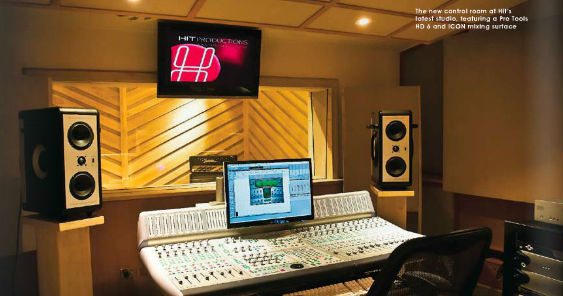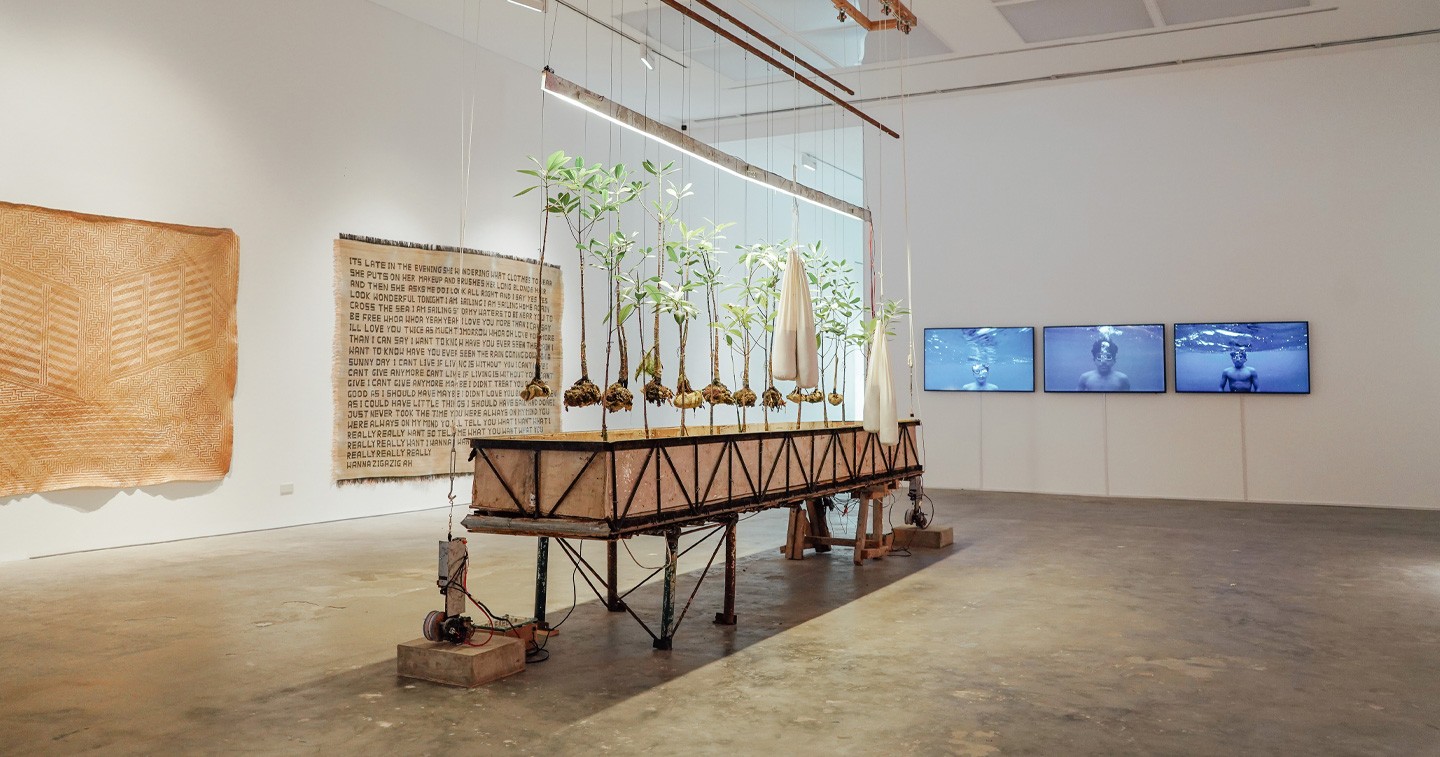by Cynthia Dayco
“Don’t go into business with friends.”
It’s an adage that exists for good reason: Great friendships often do not make for great business partnerships. In many cases, both bonds end up in tatters. However there are exceptions, and when they do happen, it’s a boon for one and all. Take for example four friends who took a chance on one another and a dream called Hit Productions.
An extremely prolific outfit, Hit Productions created the soundtracks of 70 percent of the Philippines’ Araw Winners from the last two years, an achievement for which it was honored the first Araw Production House award. Among these ads were the country’s first winners of the Gold Lion (Lotus Spa “Corporitual” and “Traffic Therapy”) and Bronze Lion for radio (FedEx “The Delivery”).
More impressively, the 4As Philippines named Hit Productions its Audio Production House of the Year seven times—quite a feat when you consider that this honor has only been awarded 10 times.
The production house began in 1991, sprung from the minds of four friends: Dennis Cham, Brian Cua, Salito Malca, and Charles Rappaport. How they got together is a case study in social networking, albeit years before the concept found a home on the internet.

Brian was a young musician composer fresh out of De La Salle University who met Dennis through a parent of a schoolmate. Fortuitously, Dennis’ family owned a recording studio, in which Charles, a music producer and talent manager, often worked. In turn, Charles knew Salito, a businessman and finance guy.
“But it was through the recording studio that we all met,” says the youthful Brian languidly, flashing his Cheshire cat smile. “Our first project was Del Monte [Pineapple Juice] ‘540 Sunrises’.”
Because Brian, Hit’s creative director, was the youngest of the original partners, he was initially the sound designer, musician, editor and occasionally, the delivery boy. Charles was the producer; Dennis, the recording engineer and all-around tech whiz, while Salito was the finance manager. Each partner had a job to do at Hit.
The startup quickly became known as the coño production house, because of Charles’ and Salito’s burly Caucasian looks. The social profiling didn’t hurt. In fact. It did so well that after a year, they took on a new music arranger, Vic Icasas.
Like Brian, Vic stepped in fresh from his commencement exercise. They were good friends from college, and Brian was eager to get him on board. At first, he limited his involvement to music arrangement, but he soon impressed the partners with his business acumen, management skills and passion for his craft.
It was the halcyon days of Hit. They ingeniously marketed the company by regularly producing a demo reels of its best work. They threw block parties that bordered on legendary, eclipsed only by the amazing sandwiches they served in the studio lounge. More importantly, they changed the Philippine paradigm of an audio production house.

In the nineties, the music house created jingles and soundtracks; the audio post house did the recording, dubbing, sound editing and mixing—and never the twain should meet.
But Dennis and Salito asked “why the hell not?” so heavily investing in new audio post-editing equipment and adding six more studios to their initial two, Hit productions set out to prove the industry was wrong.
It was a gamble that would pay in spades. Demand for Hit’s service grew, and by 1997, they became 4As-Philippine’s first Audio Production House of the Year. Ana Agtarap-Palillo, vice president and senior producer of Hit, says the team, “They always want to innovate and be the first. They don’t like it when they’re told ‘you can’t do that’.”
In 1999, Charles decided it was time to strike out on his own. He sold his shares to the others who, in turn, made Vic the fourth partner (and years later, the president). But shortly thereafter, Charles was hired by a group that wanted a Hit of their very own.
Brian says, “So this group pirated half of our personnels—including the canteen girl—and stole our booking notebook, business forms, library of voice talents—“ “Even out signature tuna melt,” chimes in Dennis.
Brian continues, “It was very trying time for us. We had to start all over again.” Perhaps it was just as well, because the setback forced Hit Productions to try new track.
“As with all bad times, you tend to reinvent yourself,” says Dennis. Like his partners, Dennis knows a bit about reinvention. Although his boyish looks say otherwise, Hit’s technical director actually went to recording school in the US and apprenticed with the Record Plant and “all the big 70s names” in the American music industry.
Brian adds, “Dennis may come from the old school, but he always keeps up with the latest. It’s a hobby and a passion for him.”
Dennis tosses the admiration back to Brian. “Just like Brian. He may be the oldest of our arrangers, but he’s got the youngest sound.”
Clearly, all four understood the art of reinvention. With that, they rebuilt Hit Productions.
First on the list was a proper staff, starting with Ana Agtara-Palillo, then a seasoned producer form JWT. She came on board to professionalize the system, the processes and to ensure the company was filled with people with different skill sets.
That meant hiring sound engineers that they could train from the ground up; composers and arrangers who weren’t just proficient in one genre but jazz, rock, folk, orchestral, pop, and dance; ex-agency coordinators who knew the urgency, the odd hours and the perfectionism demanded by the advertising production.
To keep their talents sharp, Dennis began his annual pilgrimage to NAMM (National Association of Music Merchants show). The partners game him carte blanche to choose what’s hot in soundcards, software, loops, sampling libraries, and to brim them all back to Hit.
Vic goes further. “In addition to tools, we encourage our people to listen to current trends in music and deconstruct the sound, [because] chances are an agency’s gonna ask for that as a peg sooner or later.”
Next was the upgrading of Hit’s facilities. In time, it had 16 studios—eight composer suites, seven music suites with one more on the way—al wired to a network, a capacity that is still unequaled in the Philippines.
Then they focused on client service. Realizing that the agency’s and client’s choice of a post house could be both complex and shallow, they made hit that foolproof option.
“Hit makes life very easy, providing DVDs and mpeg videos on request, saving the agency the trouble of having to pull out their files of Hit to return it to their production house for conversion,” explains Vic.
Brian adds, “We’re the first one to put up a client lounge and wi-fi. Now, we even have a producer’s lounge and a conference room. We don’t make money off that, but we give it as part of our client service.
“But you’ll notice our sandwiches are Php400 each,” jokes Vic.
Of course, Hit can please everyone, but at least, it pleases some of the best in the business. Take Chona Bustamante and Steve Vesagas, two of the industry’s top producers. Steve knows exactly why he prefers Hit.
“Their comprehensive set-up designed to cater to almost anything a producer dishes out, thus allowing quicker turnaround time. They constantly seek to modify, improve and upgrade what they have. This naturally raises the bar in soundtrack production.”
“Their creative force is ever evolving, the support base is strong and the servicing is always sensitive to the needs of its clients, no matter how difficult or irrational at time.”
Brian sums it up neatly. “Dapat balanced. Talented ka pero accommodating ka.” Now, a balancing act like that is only possible when every partner does his job and does it well. The element of trust becomes more important than ever. In fact, it becomes the fuel and the lubricant for reinvention.
“We don’t get in each other’s way to get the job done. I’m creative, so they trust me to make the creative decisions. I trust Salito to handle the financials; Dennis, all the technical stuff and setting up the studio.”
“The barriers to putting up a studio are less now,” says Vic of the new pressures on their business. “The technology is cheaper. No one splices tape anymore. Nobody needs to invest in reel-to-reel machines or u-matic machines.” “And anybody can buy a laptop. A lot of what you hear on air now can be done on a laptop at home, so the quality of the person running the laptop becomes the issue.”
So if you trust in the talent of the people around you, the challenge of adapting to the market’s demands becomes just a little more manageable. And if your client trusts you to do the best job, then you’re halfway there.
Vic puts it this way. “Composing for TV is like a black art, because you can get one of the country’s top musicians in the business and put him up against one of our guys. And nine times out of ten, the guy from Hit will win, because he knows what’s involved, where to highlight, what the agency is looking for in the ending, and how to make it to tell a story in 30 seconds. It’s entirely different class of music altogether.” Not bad for a production outfit that lost nearly everything and survived only through reinvention.
“Reinvent is a too big word for what we did,” says Vic. “Adapt is more accurate. We came from any era where everything was recorded on tape, and music was done live. They we did the whole media thing, and now people find media to sterile, so now we’re coming back to live band feel, the live instrument feel.”
“I mean it’s always changing, but if you pull back and look at the bigger picture, Hit is built on a business model that is tied in purely to TV and radio advertising—which may not be around 20 years from now. So it’s all a matter of adapting and changing so we can respond as best as possible.”
As usual, Brian encapsulates it. “The medium may change, but they will still need their music.”
So what’s next for Hit Production? How does its tight circle of trust plan on being Audio Production House of the Year for an eight time?
While it’s obviously on their minds, they try not to think too hard about it.
“Every year we win, it’s a reminder that we’re doing a good job. Every year that we don’t, it’s a reminder to stay humble and to keep trying harder because you’re not going to win them all.”
As if Hit Productions didn’t have enough studios, the partners have gone off and built another. To be completed by June 2008, it is their most impressive one yet and is dubbed “Studio H.”
Dennis Cham, the group’s technical expert, explains, “Many artists work with corporate sponsors like Coke, Uniliver, and Nestlé to market their music though non-traditional channels. While local music studios can do regular record label work, work are not built to service the unique demands of the ad industry. So we felt that it was time to build a high-quality music room that meets the evolving needs of the music-for-music advertising market.”
Designed by the American acoustician Rod Gervais, the new room was inspired by the design of New York’s legendary Power Stadium Studios (birthplace of landmark albums by Chic, David Bowie, Bon Jovi, Bruce Spring-steen and countless others.”
It will allow the recording of anything from five-piece rock band to a live string and horn session. Yes, agencies will once again enjoy the luxury of soundtracks recorded by a group of musicians playing together, not programmed in a computer.
On the equipment side, the studio will have largest Pro Tools HD workstation in the country and include a 24-fader ICON D-Command mixing surface. Technically, this room will be at par with any top ad music house in the US or Europe, and will exceed many in Asia.
This being Hit Productions, Dennis has not forgotten the “extras” that are important to its agency client base.
“In addition to an accessible Makati location, we also took extra measures in ensure the confidentiality for high-profile work, the studio is in a totally separate unit, with its own secured entry. Included with the studio is a private client lounge with its own kitchen, rest room, dining and conference areas—the same comforts and services as many world class music house in NY, Chicago or London.”
Despite being only 90 percent finished (as of press time), studio H is already booked solid by a production music company from Munich, and several producers are eagerly waiting to do projects in the new space.
Looks like the H in Studio H stands for Hit.
This article was first published in the May-June 2008 issue of adobo magazine.









